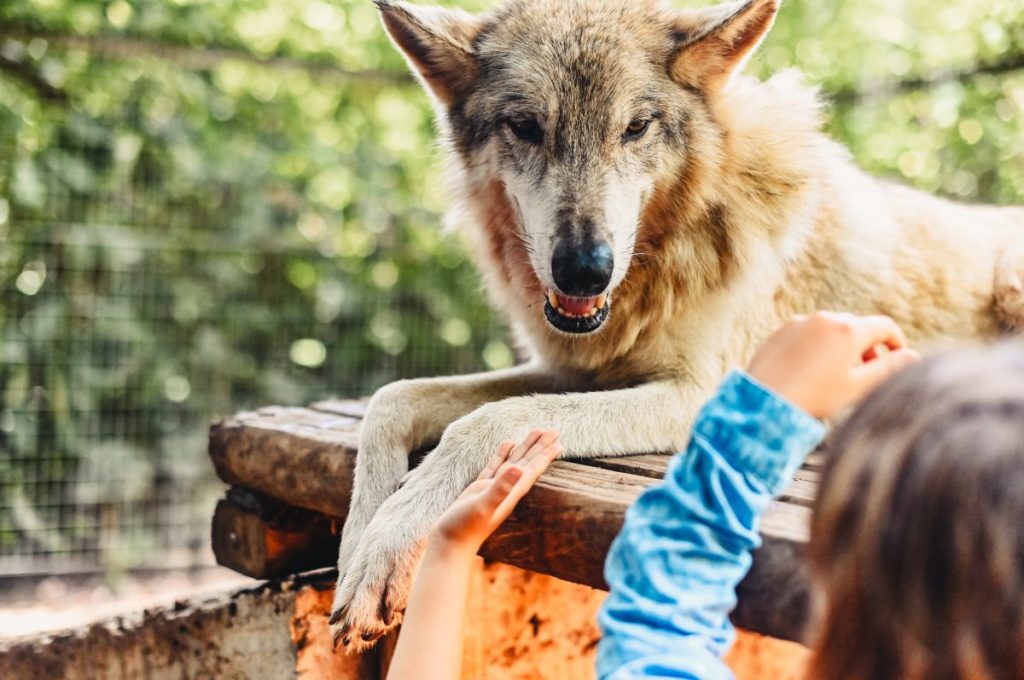Question:
I’m interested in a dog-wolf hybrid — what should I know?
Answer:
Wolfdogs, also known as wolf hybrids, are a mix of wolf and dog. They range from low wolf content (mostly dog) to very high content (mostly wolf), and are usually mixed with Malamute, Husky, or German Shepherd. While wolfdogs can be beautiful, affectionate, loving companions, they are also not the perfect choice of pet for the average person.
Here are some things to consider: First, legalities. Wolfdogs are illegal to own in many areas. If yours escapes and ends up at the local shelter, chances are you may not get him back.
That brings us to containment. Wolfdogs can clear a six-foot fence without much effort. Are you willing to spend the time and money to build proper containment, which may include modifying your fencing or building an enclosure?
These large, strong animals can be quite energetic and destructive — a potentially hazardous combination! Wolfdogs who have been left unsupervised in apartments, for example, have been known to tear up lineoleum and eat through drywall.
Are you prepared to provide the intense level of exercise required by these energetic canines? The twice-daily 15-minute potty-walk that works fine for your Bichon won’t cut it for a wolfdog. Depending on age and genetics, figure on an average of one to two hours of solid exercise per day.
As a general rule, the “wolfier” the animal looks, the more wolf-like behaviors it will have. Unfortunately, those behaviors include a strong prey drive (potentially not conducive to the longevity of small animals like cats or rabbits), and a serious tendency toward resource guarding. Remember, the higher the wolf content, the stronger the wolf-like tendencies. Wolfdogs are absolutely not recommended for families with small children.
Pure wolves are naturally afraid of people. Higher content wolfdogs often have major fear issues, and can be extremely skittish around people and new environments. Are you willing to take on a potentially lifelong project involving extensive behavior modification and careful management?
You may have gotten the impression by now that I dislike wolfdogs. In fact, nothing could be farther from the truth. I offer this information from the perspective of someone who has worked with pure wolves and wolfdogs in rescue for over fifteen years. I truly love these animals, but over and over I have seen what happens when that cute wolfy-looking puppy becomes a mouthy, out-of-control adolescent — think doggy teenage behavior times ten!
My goal in sharing this information is to prevent the heartbreak that occurs when a nice, well-meaning person raises a wolfdog but at some point just can’t live with the behavior any longer, forcing the animal to live out its life in a rescue center–and that’s if he’s lucky.
Please, please consider carefully before you make a decision that could impact many lives. For more information, refer to Living with Wolfdogs and Wolfdogs A-Z: Behavior, Training & More.









